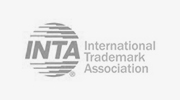20 August 2021
When Argentinian IP agents mainly focusing on patent practice talk to foreign colleagues, we frequently come across the following questions “Argentina is not a member of the PCT, is it? “or “How soon do you expect accession to take place?” Questions to which, for the time being, we do not have a definitive answer.
Of course, for countries that have already come a long way in filing PCT applications, it is sometimes difficult to understand how a country can miss out its advantages.
Argentina has been discussing the definitive accession to the Patent Cooperation Treaty (PCT) for many years. The Argentinean Senate gave half approval to the bill in 1998, but the Chamber of Deputies has not yet resolved the issue. But why has Argentina been delaying its accession for so long? We will try to clarify some questions.
1. Statistical profile of Argentina:
Argentina’s economy is the second largest in South America according to 2020 data, surpassed only by Brazil. Together with Brazil, these are the only South American countries to be part of the G-20, which brings together most of the world’s largest, wealthiest, and most industrialized economies. In 2017, studies concluded that the Food and Beverage sectors are the most competitive in the Argentinian industry, based on the domestic market and a good insertion in foreign trade, and the top-five is completed with basic resources, pharmaceuticals and oil products.
In turn, and more specifically in terms of Patents, according to the latest World Intellectual Property Organization (WIPO) analysis, during 2019 3,702 patent applications were filed in Argentina, 3,260 correspond to foreign applicants, which implied a slight increase compared to 2018 (3,667 applications, 3,242 among them belong to foreign applicants), but a drastic decrease compared to 2014, when a peak of 4,682 applications was reached, (4,173 corresponded to foreign applicants).
2. Why are filing applications trending downwards?
One of Argentina’s main disadvantages is the delay in the prosecution of patent applications and the very restricted patentability criteria, especially in the chemical-pharmaceutical sector.
These delays and restrictions are often the main reason for applicants to exclude Argentina from their filing strategy or abandon their applications once filed.
These are all key factors when it comes to investment, discouraging foreign investors and pushing them towards other countries in the region.
3. Main advantages of the PCT
As it is well known, the main goal of the Treaty is to facilitate the filing of patent applications in several countries and to reduce the costs involved in filing through the traditional route established by the Paris Convention.
PCT opens the door for an applicant to 153 countries (which are the current contracting countries) through an international application, in a single Office, paying a single official fee, and having a 30 month-period to analyze whether it wishes to continue with the prosecution in the member countries of its interest, and if so, which territories at all. If this mechanism did not exist, an applicant would only have 12 months to analyze which countries are of interest to it and arrange the filings, considering the high costs involved in such a project.
Furthermore, within approximately five months from filing of the international application, the applicant will have a preliminary idea as to whether its invention meets the three requirements for patentability (novelty, inventive step and industrial applicability), as it will receive the search report and the examiner’s written opinion, whereas in the traditional way, it would receive this information within a period of no less than eighteen months from the filing of the application in each country, depending on the workload of the examiners and the invention itself.
On the other hand, this also implies a benefit for local Patent Offices, as it reduces a large part of the work of formal examination and background research, especially for those offices that have short resources to access the information needed to prepare the examination reports.
Of course, this does not imply that the examination work itself is completed, indeed Art. 27(5) of the PCT provides that “Nothing in this Treaty and the Regulations shall be construed as limiting the freedom of any Contracting State to determine any substantive conditions of patentability which it may wish. In particular, any provision of this Treaty and the Regulations relating to the definition of prior art shall be understood exclusively for the purposes of the international procedure and, accordingly, when determining the patentability of the invention claimed in an international application, any Contracting State shall be free to apply the criteria of its national law as to prior art and other conditions of patentability which do not constitute requirements relating to the form and contents of applications”. In other words, the search carried out in the international phase and its results will be “a compass” for the analysis in the national phase, since it will still be the local Offices which will decide whether the invention complies with the patentability requirements, according to their own laws and regulations.
4. The main opponents’ arguments against the accession to the PCT: The undermining of local industry
Opponents of the accession, mainly SMEs, foundations, scientific institutions, and Chambers that group together Argentine pharmaceutical laboratories, argue that the PCT will mainly favor foreign laboratories’ patents, to the detriment of national ones.
Also, by increasing PCT applications for multinational companies, there would be higher barriers to competition for local companies, which would affect their existence and the sources of employment they provide. On the other hand, it would also require an increase in the IP office’s budget to meet the timelines that such patent applications require (e.g. hiring many more examiners). Therefore, opponents understand that the adoption of the PCT would imply a higher budgetary cost for the sake of financing the rights of foreign monopolies, instead of promoting innovation and national development with these funds.
Many of these companies, however, make use of their foreign subsidiaries to apply for patents abroad, as it is known to be an efficient, but above all, significantly cheaper mechanism…
However, statistics show that these arguments are not accurate: Mexico, which joined the PCT in 1995, increased its patent applications by more than 100% and Colombia, which joined the PCT in 2001, increased its patent applications by 300%, to name but a few examples.
This only makes it clear that the real reasons behind the opponents’ position are neither the defense of national sovereignty, nor the protection of public interest (such as the right to healthcare), but free access to technology and innovation, which result from an incalculable investment by third parties, to purely satisfy private interests.
5. A light at the end of the road: The MERCOSUR-EU agreement
On 28 June 2019, negotiations for the signing of a Strategic Partnership Agreement with the European Union were concluded. Although the agreement does not modify patent legislation, we are confident that Argentina will start working to reactivate the legislative debate on joining the PCT, to be in line with both EU member countries and Brazil, a MERCOSUR member and PCT contracting state, which is among the 4 large middle-income countries with the highest number of PCT applications filed during 2020.
6. Final conclusions
It is clear that for any nation to progress, it is essential to play an active role in the world market and to have a stable level of investment. In particular, for Argentina, it is essential that there is a real change of paradigm and that the country becomes an attractive place, not only for the rest of the countries in the economic community, but also internally, where local industries make the corresponding investments in R&D and increase education in science and technology. This will lead to an improvement in the competitiveness of industries, among other issues.
As for the Argentinean Patent Office, it would also be very fruitful to promote the benefits and importance of PCT membership.
Argentina has a long history of framing all its debates in terms of “black” or “white” without considering the scale of greys in between. Almost like a “River-Boca” or a “Real Madrid-Barcelona” (for those who are football fans). We must have and, above all, we deserve a truly serious debate, where all voices are taken into account and not just the old and historic “singing voices” which pull the strings of our country behind the scenes.
Perhaps, in the not-too-distant future, the next article will find us discussing what changes in our practice the recent accession to the PCT has brought along. Let us hope so.




























Comentarios
No Comments